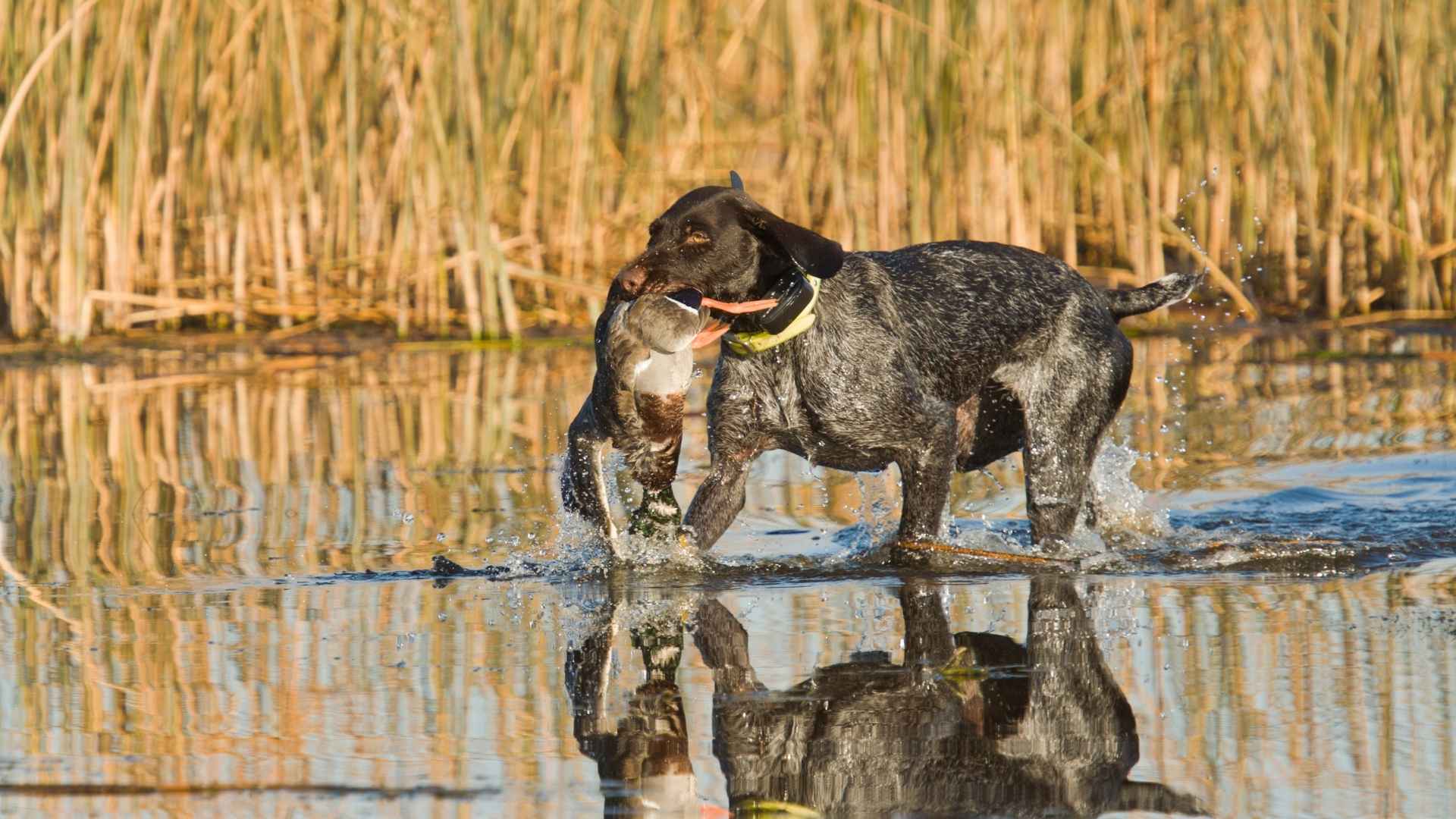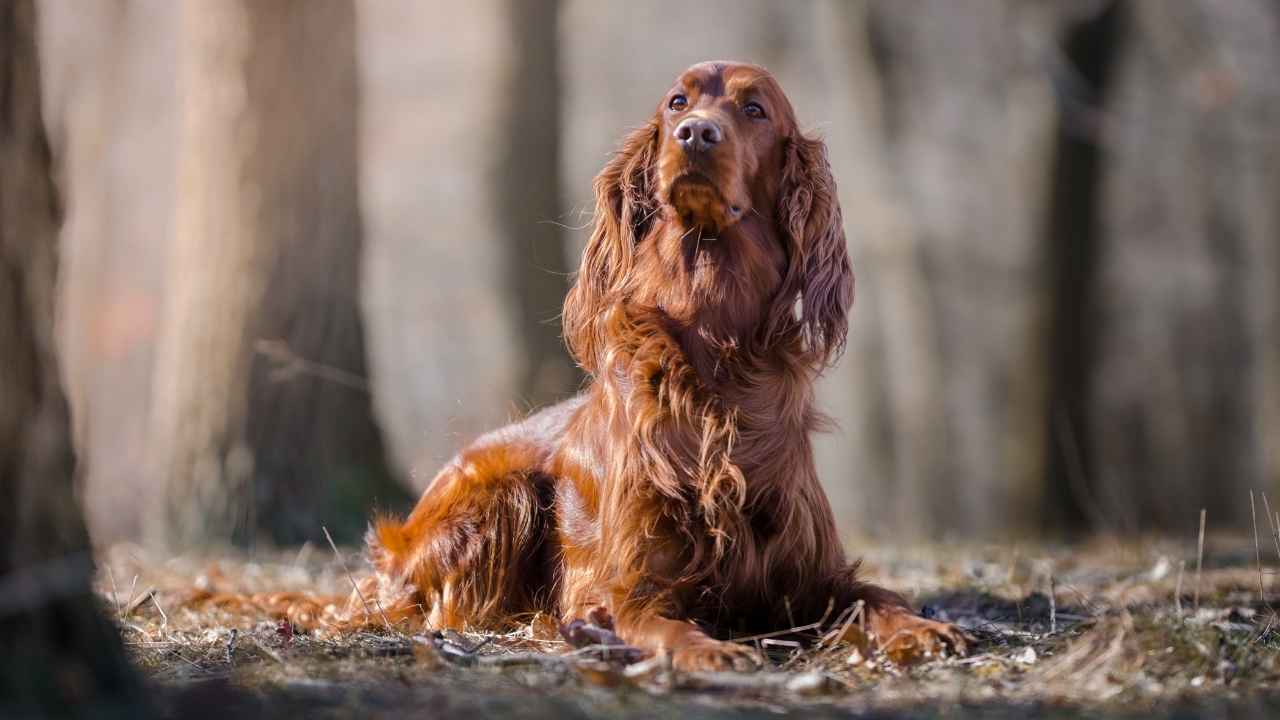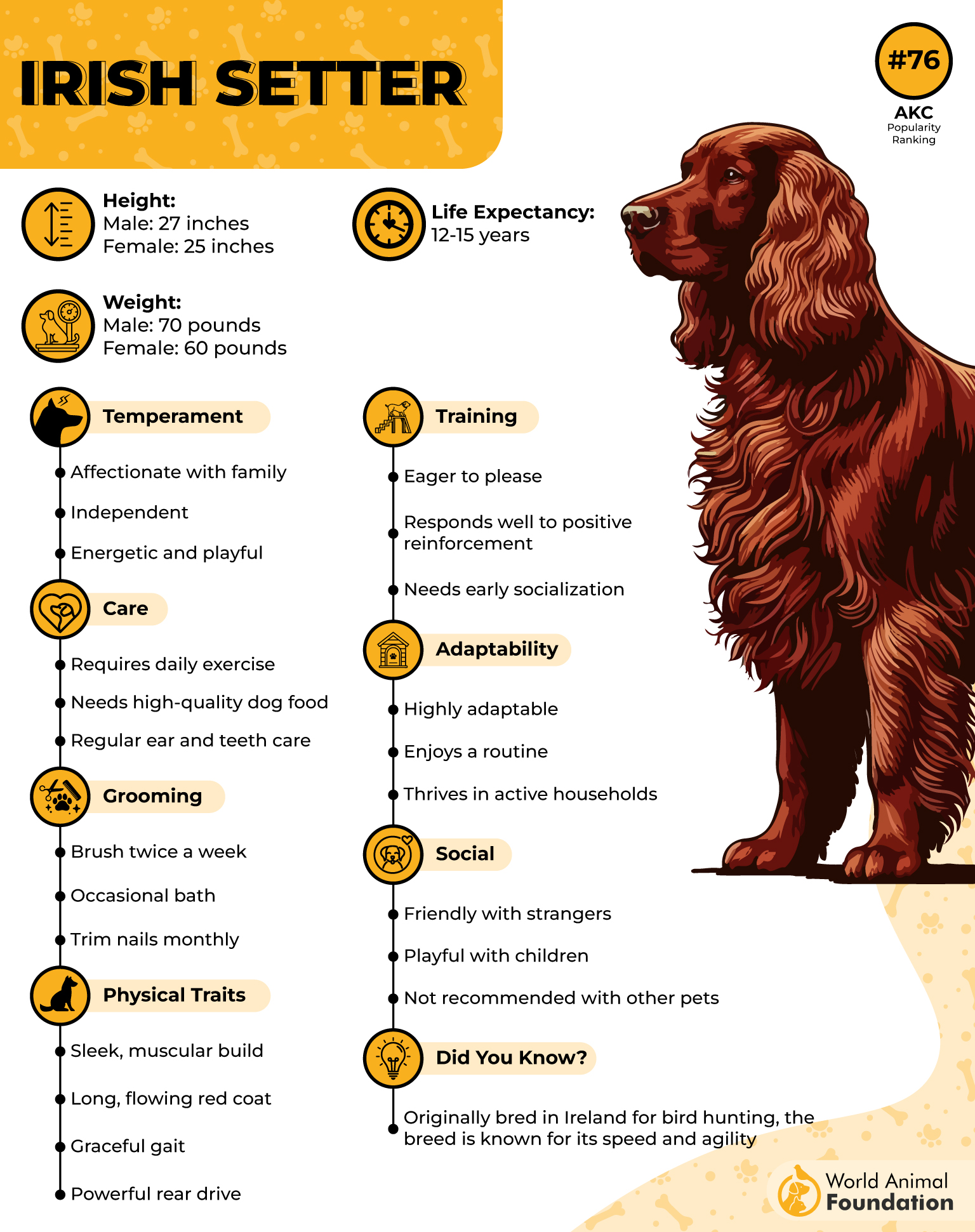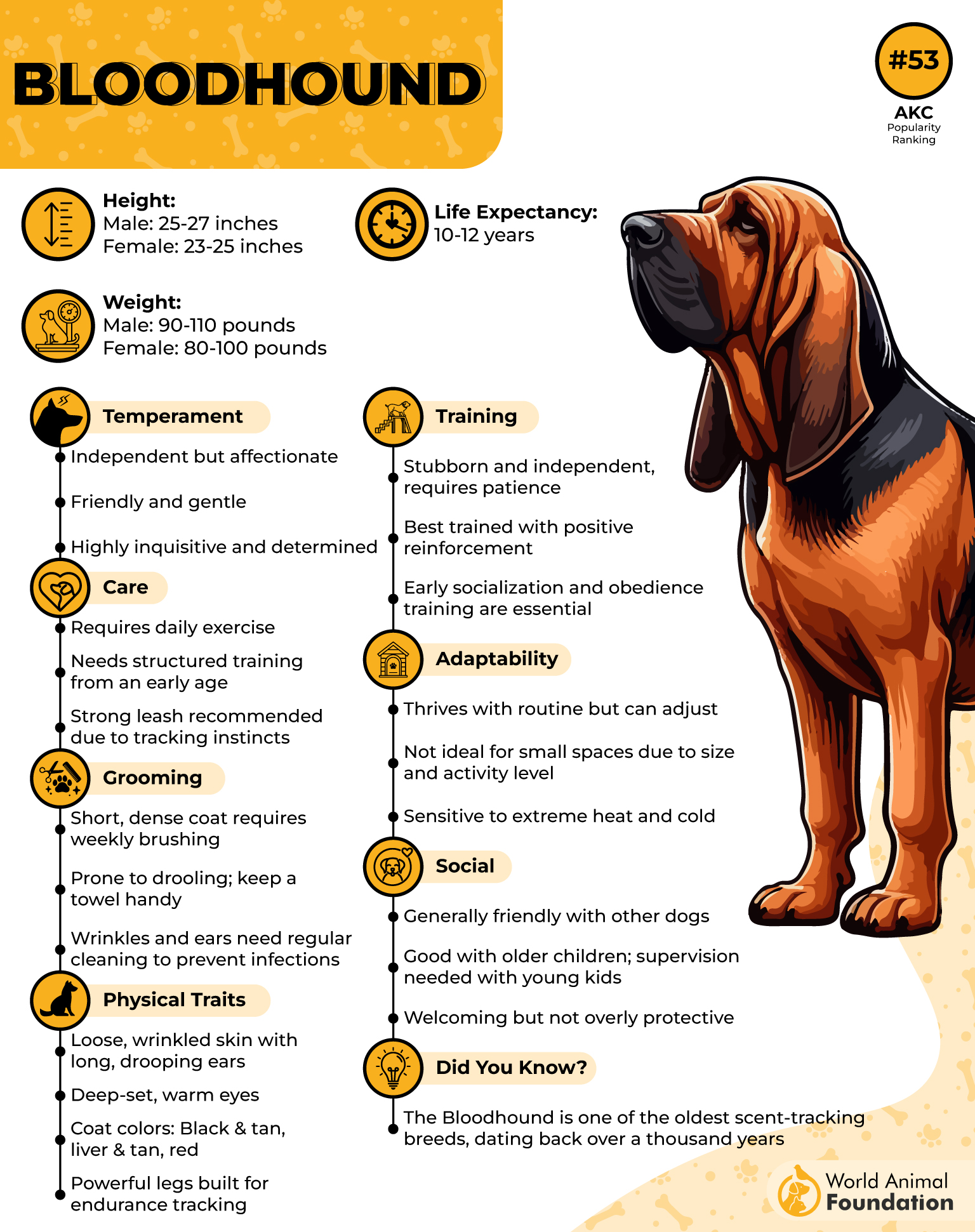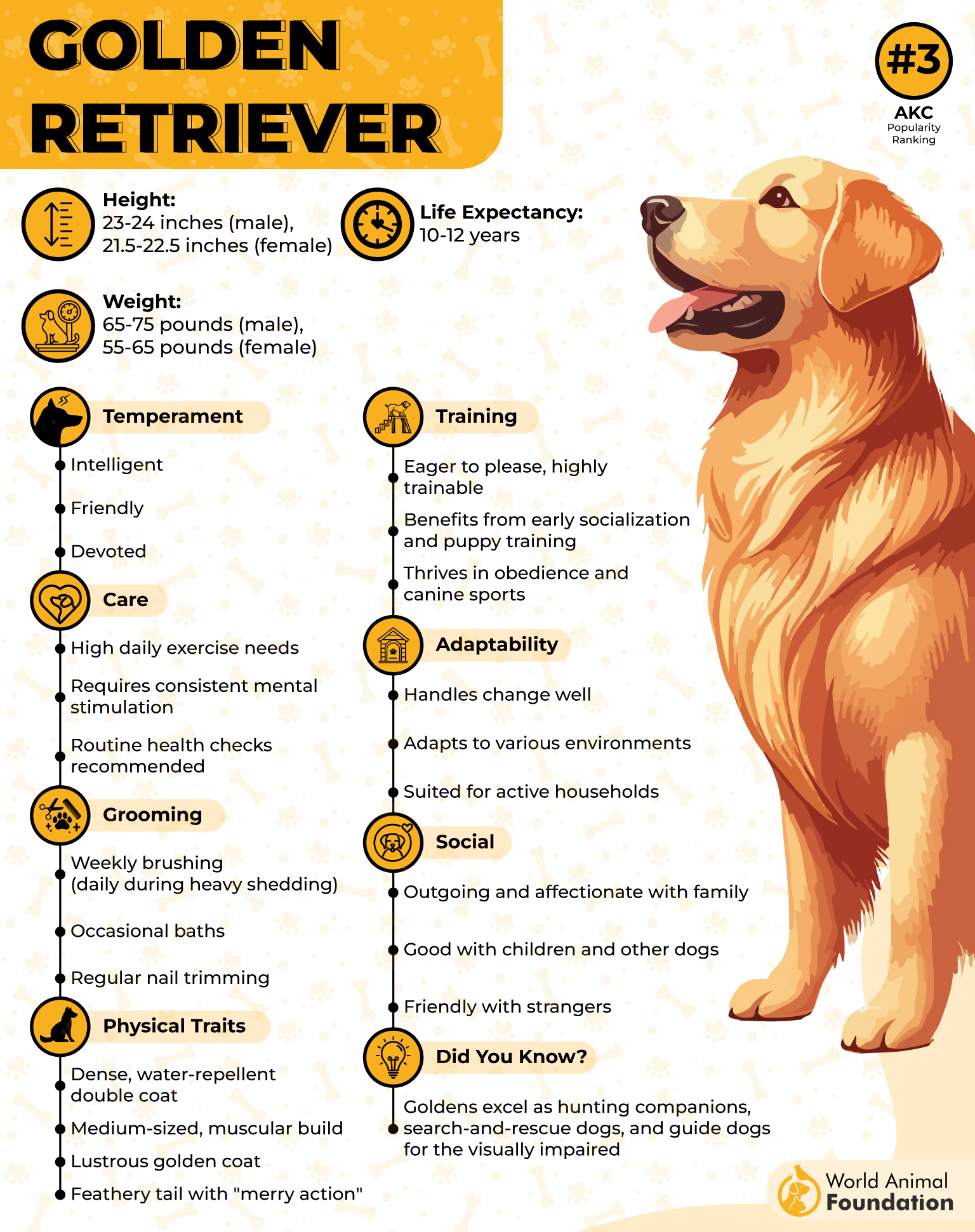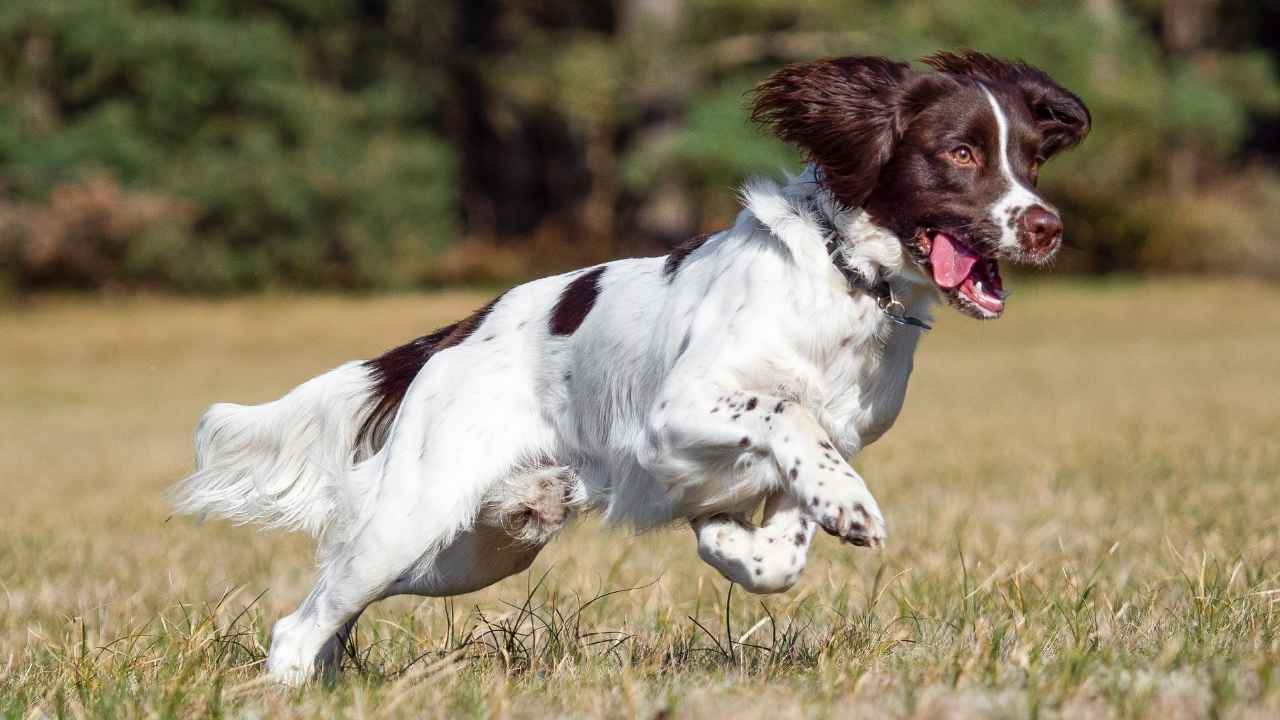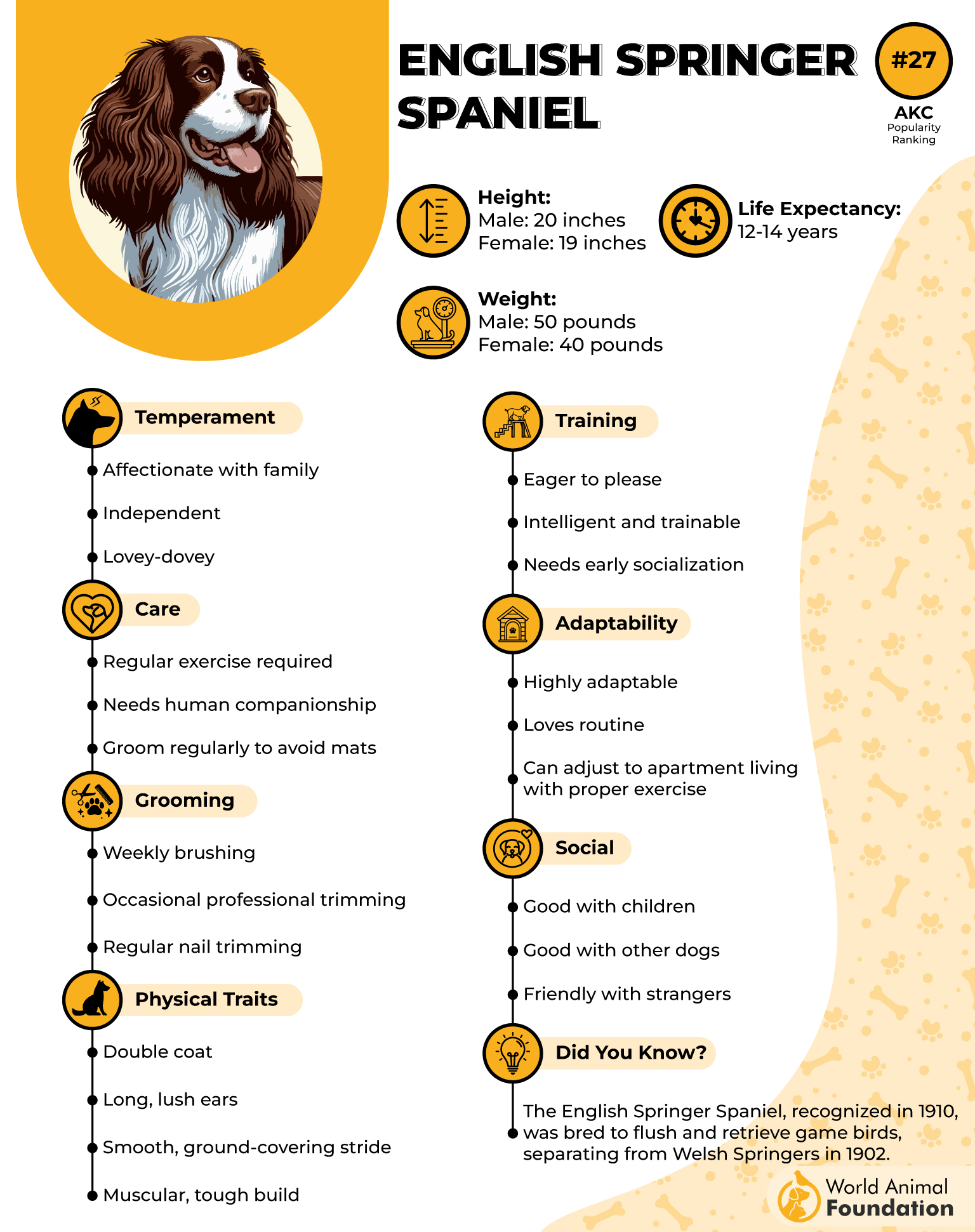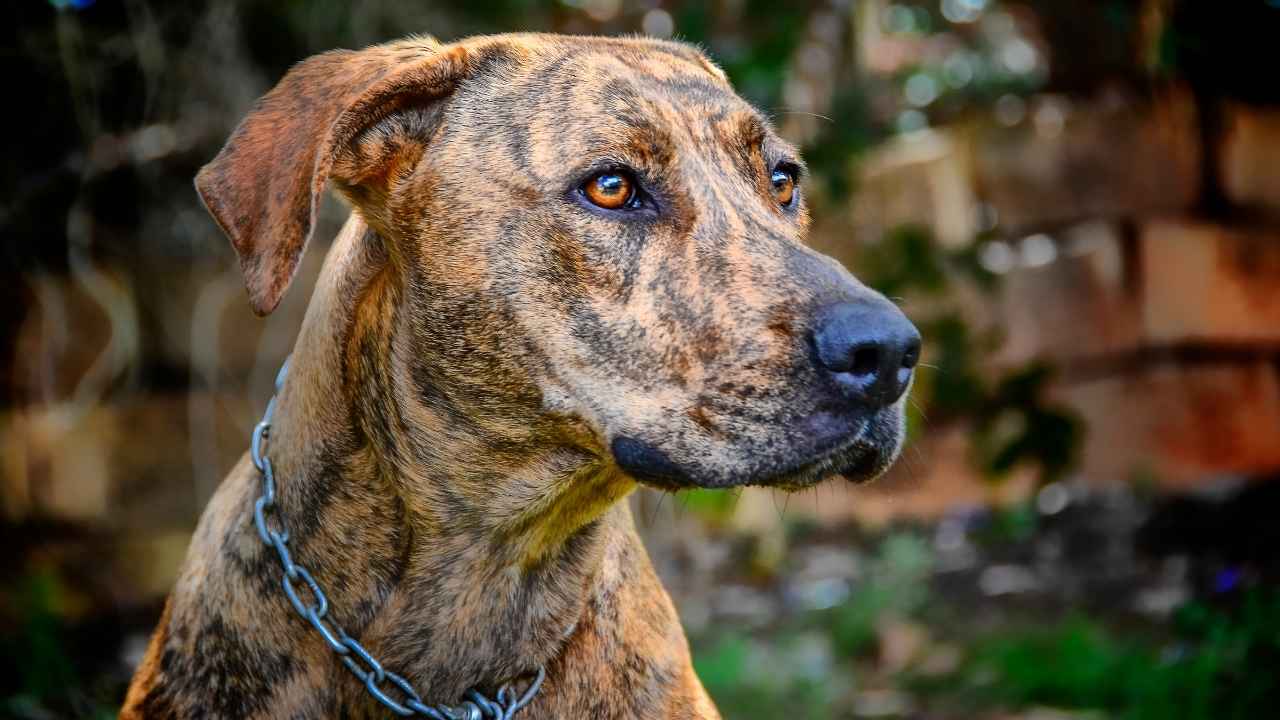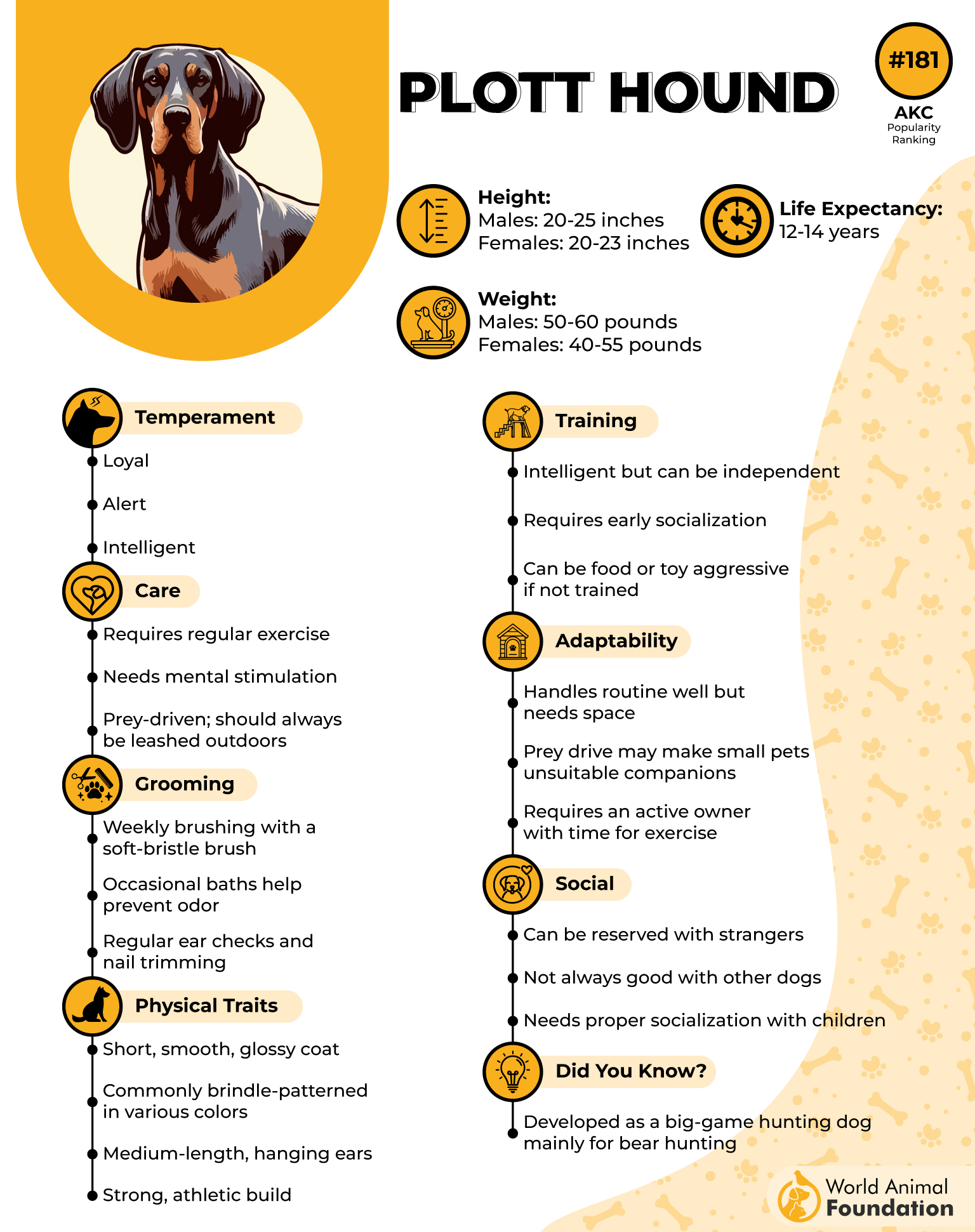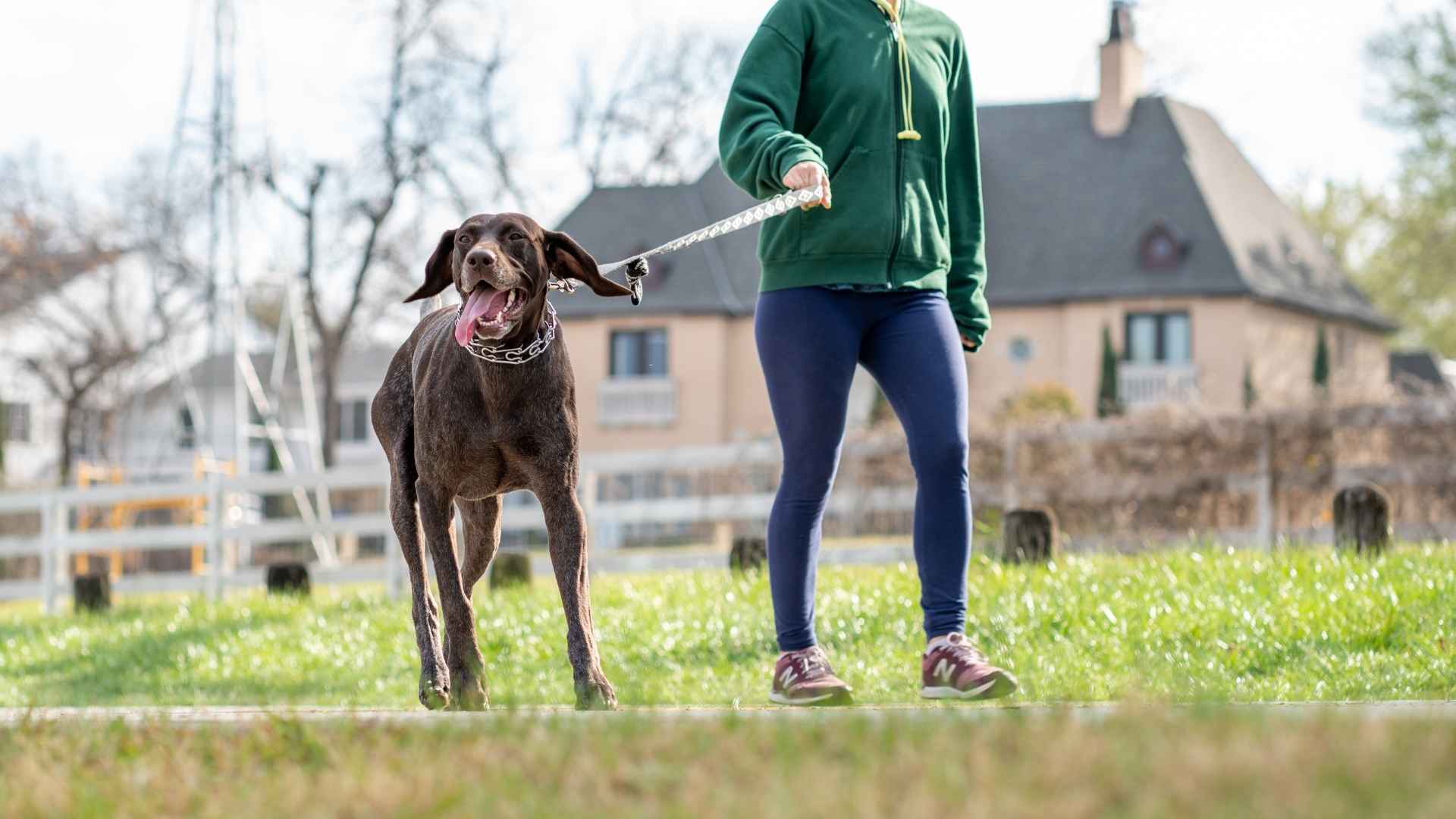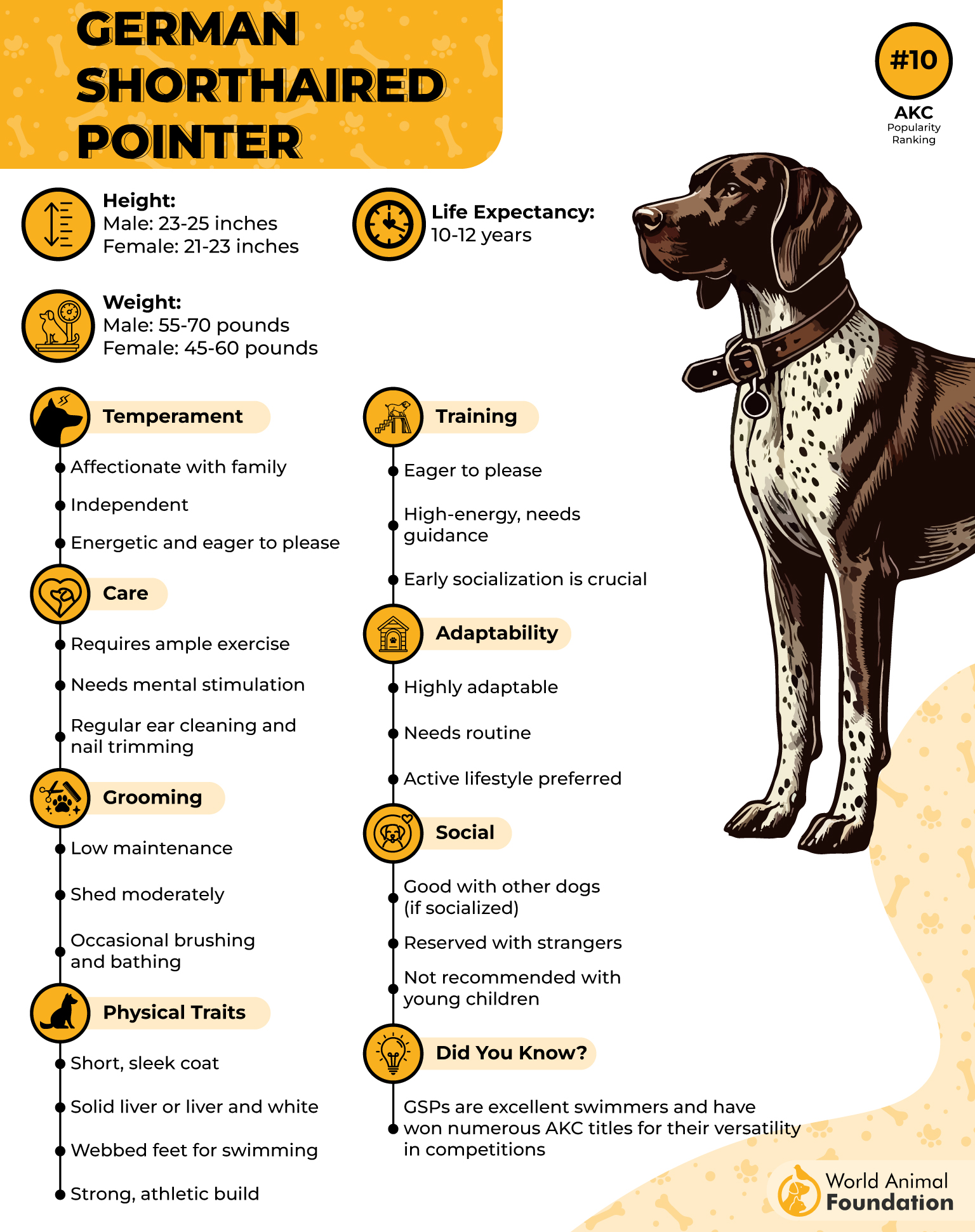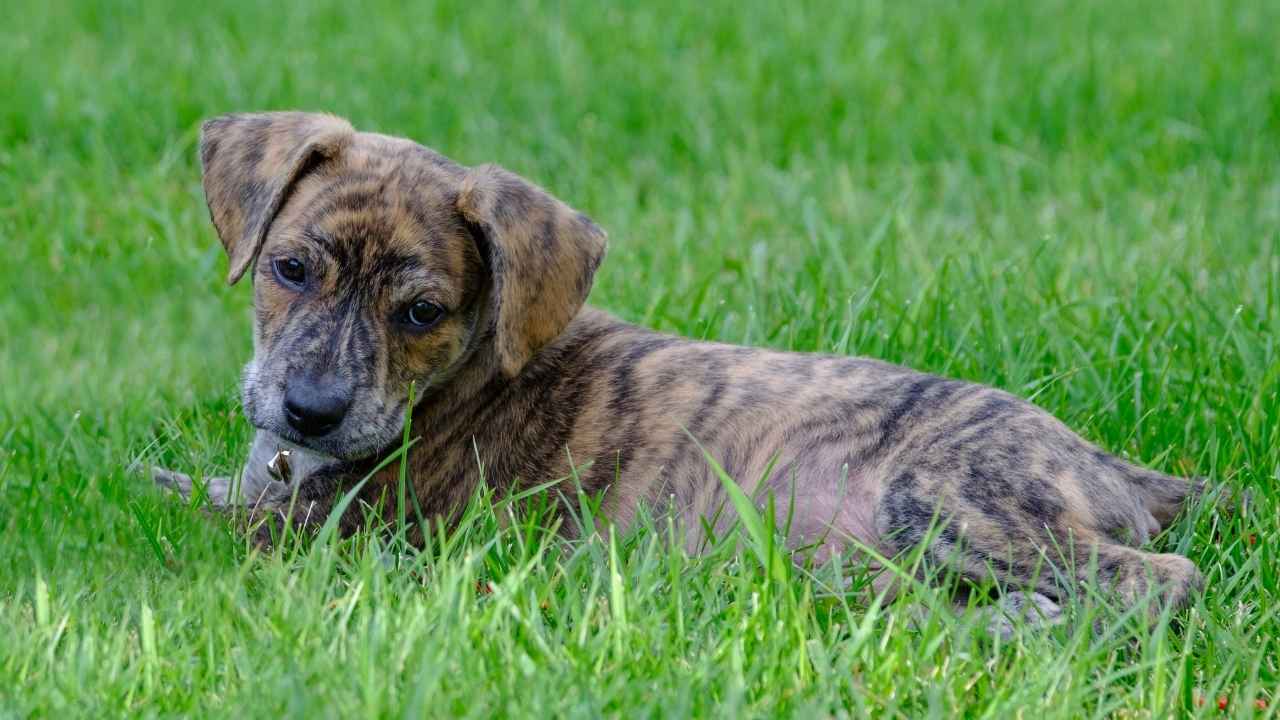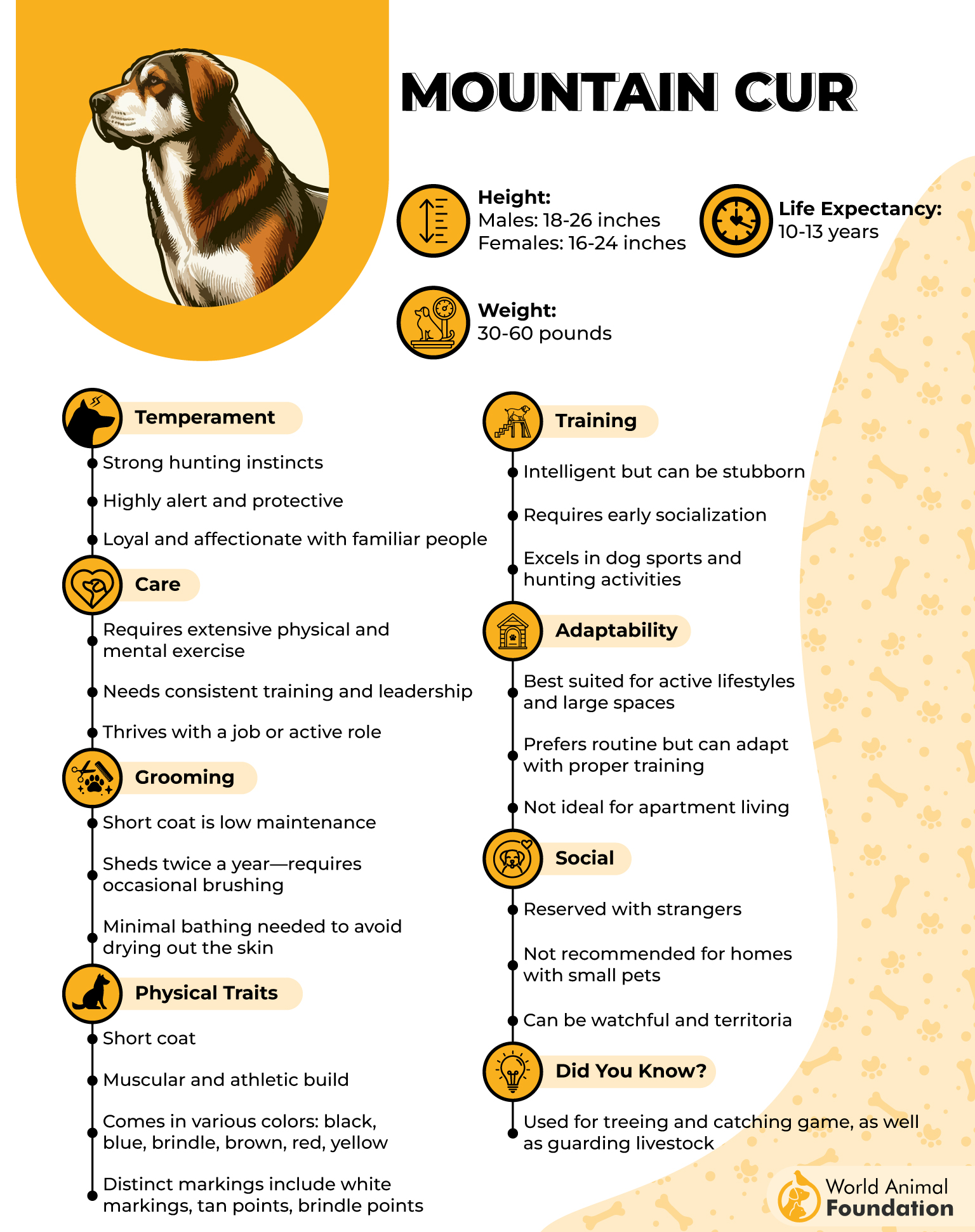Hunting has long been a collaboration between humans and animals, a testament to the bonds we forge in pursuit of a shared goal. Among the myriad of dog breeds, there are select few that stand out as exceptional hunting companions. These top seven hunting dog breeds exemplify the perfect blend of instinct, intelligence, agility, and endurance, each contributing distinct skills and characteristics that set them apart in the field. From the loyal Labrador Retriever to the tenacious Beagle, explore what makes these canine partners the best choices for hunters seeking both efficiency and camaraderie.
So, you’re thinking about getting a hunting dog? Or maybe you’re just curious about which breeds stand out in the field? Either way, you’re in for a treat.
A great hunting dog isn’t just a companion, it’s a partner, a teammate, the one who’s right there with you through thick brush, muddy trails, and crisp morning air. The connection between a hunter and their dog runs deep. It’s built on trust, instinct, and a shared love for the outdoors.
But not every dog is cut out for the job. Some breeds are born to track, point, flush, and retrieve. Others? Not so much. If you’re looking for a four-legged hunting buddy who can handle the challenge, you need the right breed.
Top Hunting Dog Breeds
1. Irish Setter
If you’re after a dog that can point upland birds with precision, the Irish Setter is a natural. Their instincts kick in fast, locking onto a scent and freezing mid-stride. It’s the kind of moment that sends a rush straight through your chest.
This sporting breed isn’t just about the hunt, though. Back home, they slip into family life effortlessly. Playful, affectionate, and packed with energy, they thrive as house dogs who love a good backyard sprint as much as a day in the wild.
Tall and lean, they’re built for endurance, not brute strength. Their athleticism keeps them going for hours without missing a beat. If you’re the type who never sits still, this dog will match your energy every step of the way.
Beyond the hunt, they’re known for their deep, soulful eyes and almost human-like expressions. It’s hard to resist that gaze—it’s like they understand every word you say. And honestly? Maybe they do.
A versatile dog, they adapt to different hunting styles but truly shine in open fields. Their long strides and sharp noses make them experts at covering ground fast. No scent goes unnoticed, and no movement is ignored.
Despite their hunting prowess, they have a soft side. As family dogs, they’re gentle, patient, and always up for a cuddle after a long day. Whether in the field or curled up at your feet, they give you everything they’ve got.
2. Bloodhound
Originally bred for tracking deer and wild boar, these hounds have an uncanny ability to follow a scent trail that’s days old.
While not typically used to retrieve birds, Bloodhounds excel in tracking, making them invaluable in search and rescue missions. Their droopy ears and wrinkled skin aren’t just for show; they help funnel scents to that powerful nose.
Despite their serious work ethic, Bloodhounds are gentle giants at home. They’re affectionate, patient, and great with kids, making them wonderful family dogs. But don’t let their laid-back demeanor fool you; these are active dogs that need plenty of exercise to keep them happy.
Standing between 23 to 27 inches tall and weighing around 80 to 110 pounds, Bloodhounds have a sturdy build. Their short, dense coat comes in colors like black and tan, liver and tan, or red. Those soulful eyes and expressive faces can melt your heart in an instant.
One thing to note: Bloodhounds are known for their vocalizations. Their deep baying can be quite the serenade, especially when they’re on the trail of an intriguing scent. And yes, they do drool—a lot. Keeping a drool towel handy is just part of the package.
Training a Bloodhound requires patience and consistency. Their independent streak means they might not always come when called, especially if they’ve caught a whiff of something interesting. But with positive reinforcement, they can learn to be well-mannered companions.
3. Golden Retriever
Britannica stated that they are renowned for their friendly nature and intelligence. While not the official state dog of any state, they are beloved across the nation. Their gentle temperament makes them excellent companions for families and hunters alike.
Bred for hunting birds, they have a natural affinity for water and retrieving game. Their dense, water-repellent coats and strong swimming abilities make them perfect for hunting ducks and retrieving waterfowl.
They get along well with other dogs and pets. Their patience and playful nature make them wonderful additions to households with children. Standing about 21.5 to 24 inches tall and weighing between 55 to 75 pounds, they have a sturdy build complemented by their signature golden coats.
Their expressive eyes and ever-wagging tails reflect their eager-to-please attitude. Regular exercise is essential for these dogs, as they thrive on physical activity and mental stimulation. Training is typically a joy, given their intelligence and desire to work closely with their owners.
While they share some traits with other breeds, Golden Retrievers are distinct in their versatility and gentle demeanor. Whether big game in the field or serving as a loyal companion, these embody the qualities many desire in the perfect dog.
4. English Springer Spaniel
Imagine a hunting partner with boundless energy and an unwavering focus—that’s the English Springer Spaniel for you. Their high prey drive makes them exceptional at flushing game from dense cover, always eager to spring into action.
According to the American Kennel Club (ACK), Springers are versatile hunters, adept at both bird and waterfowl hunting. Their keen noses excel in scent tracking, allowing them to locate the game with remarkable precision.
Navigating through rough terrain is second nature to them; their agility and determination ensure no thicket is too challenging. Whether it’s retrieving in marshes or dense woods, they’re up for the task.
While not typically used for big game hunting, their enthusiasm and versatility make them invaluable for small to medium-sized quarries. Their stamina ensures they can keep up during long hunting sessions without tiring.
At home, their affectionate nature shines, making them good dogs for families who appreciate an active companion. Their intelligence and eagerness to please make training a rewarding experience.
Regular mental and physical stimulation is key to keeping a Springer content; they thrive when given a job to do. Without adequate activity, their energy can become overwhelming.
If you’re seeking a loyal, energetic, and versatile hunting partner, the Spaniel is a great dog to consider. Their blend of work ethic and affection offers the best of both worlds.
5. Plott Hound
Meet the Plott Hound, a scent hound with an impressive history. Plotts were specifically bred for tracking large game like boar and bear. Their keen noses and relentless determination make them exceptional in the field.
While not typically used as bird hunters, their versatility shines in various hunting scenarios. Their muscular build and agility allow them to navigate rough terrain with ease. This breed’s endurance ensures they can keep up during long pursuits.
Training a Plott Hound requires patience and consistency. Their intelligence and eagerness to please make them responsive learners. Early socialization is crucial to harness their natural hunting skills effectively.
For those looking to train hunting dogs, the Plott Hound offers a balance of drive and trainability. Their loyalty and protective nature make them excellent companions both in the field and at home. Regular mental and physical stimulation is key to keeping them content.
6. German Shorthaired Pointer
Meet the GSP, a versatile and energetic gun dog celebrated for its hunting prowess. The GSP boasts a sleek, short coat, making it well-suited for warmer climates. This breed excels in various hunting roles, from pointing to retrieving, showcasing its adaptability in the field.
As a proficient duck dog, the GSP’s love for water and strong swimming abilities make it a reliable companion during duck hunting expeditions. Its keen nose and boundless energy ensure that no waterfowl goes unnoticed.
While not typically classified as catch dogs, they have been known to track and retrieve small game, thanks to their strong prey drive. Their intelligence and trainability make them adept at various hunting tasks. In comparison to flushing dogs, which are trained to flush the game out of hiding, GSPs are skilled at locating and pointing the game, allowing hunters to approach and flush the prey themselves.
In regions like South Carolina, hunters appreciate the GSP’s adaptability to diverse terrains, from wetlands to upland fields. Their endurance and versatility make them invaluable in various hunting scenarios. Beyond their hunting capabilities, GSPs are known for their affectionate nature and eagerness to please, making them excellent family companions.
Regular exercise and mental stimulation are essential for this high-energy breed to prevent boredom and ensure a well-behaved pet. With proper training and socialization, the GSP proves to be a loyal and versatile partner, both in the field and at home.
7. Mountain Cur
These high-energy dogs were indispensable to early American settlers, assisting in hunting and protecting homesteads. Their boundless energy and determination make them exceptional gun dogs.
While not typically used for pointing birds, Mountain Curs excel in hunting small game like squirrels and raccoons. Their keen senses and agility make them adept at treeing prey, showcasing their unique hunting style. Their strong prey drive ensures they remain focused during hunts.
PetMD mentioned that as formidable big game hunters, they’ve been known to track and bay larger animals such as wild boars and even bears. Their courage and tenacity are unparalleled, making them reliable partners in challenging hunts. Their muscular build aids in navigating tough terrains.
The breed’s history is deeply rooted in the Appalachian region. When European hunters arrived, they brought along terrier-type dogs, which interbred with local canines, leading to the development of the Mountain Cur. This lineage has endowed them with a strong work ethic and adaptability.
Their ability to adapt to various environments, from dense forests to open fields, makes them invaluable to hunters in the region. Their protective nature also makes them excellent guard dogs.
It’s essential to note that while breeds like the Yellow Lab are renowned for their retrieving upland game birds, especially in waterfowl hunting, Mountain Curs serve a different purpose.
Conclusion
A great hunting dog isn’t just about skill—it’s about heart, loyalty, and an unbreakable bond with its owner. Whether you need a dog for bird hunting, tracking big game, or flushing prey, the right breed makes all the difference. These dogs aren’t just companions; they’re teammates in the field.
Each breed has its strengths. Some excel at rabbit hunting, while others specialize in retrieving waterfowl or tracking wounded game. Their instincts, endurance, and determination set them apart, making every hunt more efficient and rewarding. Choosing the right dog depends on your hunting style and the terrain you navigate.
From versatile bird dogs that detect bird scent with precision to rugged breeds built for harsh conditions, every hunter has a perfect match. Some breeds even come with a double coat for protection against cold and rough terrain, allowing them to work in extreme environments without slowing down.
Ready to find your ideal hunting companion? Whether you’re a seasoned hunter or just starting, choosing the right breed is a game-changer. Do your research, train with patience, and experience the incredible bond between hunter and dog.
In conclusion, the top seven hunting dog breeds excel due to a combination of innate traits and specialized training, making them invaluable companions for hunters. Breeds like the Labrador Retriever and the German Shorthaired Pointer are celebrated for their versatility and keen instincts. Each breed brings unique strengths, whether it’s the Beagle’s excellent scent-tracking or the Vizsla’s agility and stamina. These dogs’ intelligence, loyalty, and work ethic make them not only efficient hunting partners but also beloved pets. The careful selection and training tailored to these breeds enhance their natural abilities, solidifying their status as the best in the field.

